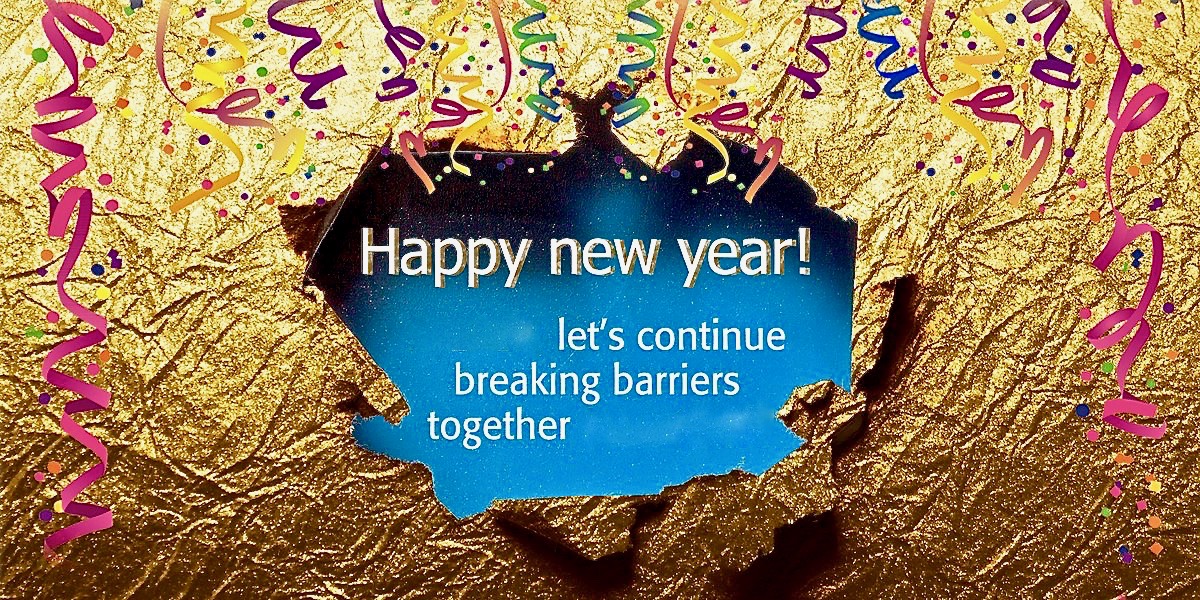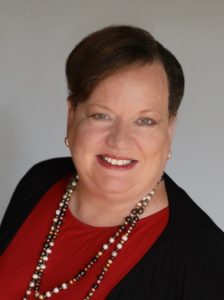News Posts List
RECOVERY REPORTER 2020 WINTER SEASON
02/26/2020
Recovery Reporter 2020 Winter Season

- Welcome to a brand-new year 2020 - Breaking down the barriers!
- News from Headquarters - Looking back, going forward
- Group Psychotherapy and Case Studies Archives February Book Study
- Stories of Hope - Featuring Joan Rice, Dr. Low's patient
- Stories of Hope - Audio interviews - Joey felt bullied in class
- Wisdom of Dr. Low - Breaking down the barriers
- Recovery Examples - This is a triviality compared to my mental health, the inner smile, an example from INDIA
- Roaming the Globe - Featuring IRELAND
- Members Corner
- Call for submissions
|
|
Welcome to a brand-new year! 2020

BREAKING DOWN THE BARRIERS
When it comes down to it, how different from each other are we really? We often talk about how others place stigma upon us, but have we really gotten over our own self-stigma because we have nervous symtoms? We talk about advocating for mental health, but if we secretly think there is something deficient in us we may hesitate to talk freely about it. Maybe we could think of ourselves as just...average. When we can talk about our symptoms confidently, the other person can then feel comfortable telling their story.
Dr. Low's talks about exceptionality and averageness (from Manage Your Fears Manage Your Anger p14,20)
It is about time that you acquire a better logic, that you acquire the logic of what is called average limitations. And people are always limited in their resistance. As I mentioned, the one has a poor resistance with regard to the nervous system, the other with regard to the digestive system, and so forth. I have patients whose nerves sometimes are so lacking resistance that they produce very severe reactions, but that's still average. There are people with a poor resistance in their digestive system, and they develop very severe pains and cramps and deficient secretion in their digestive system without having an actual organic disease of the stomach...but the patient who is extremely self-conscious once was mildly self-conscious, and if he is now extremely self-conscious, that means he has worked up his reaction to a point where it is extreme. But be certain that average persons develop extreme reactions in some field of life.
Dr. Low's definition of nervous persons and patients (from Manage Your Fears Manage Your Anger p124)
Symptoms still come, because everybody has symptoms. Don't let anybody tell you that they have no headaches and no fatigue and no tenseness. That's nonsense. Everybody has symptoms, nervous symptoms if he is human, if he lives and doesn't just vegetate. But if a person, a nervous person, reaches the stage where his symptoms come and go, and then even if they stay on, they are mild, then we call him a nervous person who, however, is no longer a nervous patient.
And if you distinguish between the nervous person and the nervous patient, then you will know that both have the same assortment of symptoms - naturally not identically the same. But both have nervous symptoms, the difference being that the one doesn't suffer from them to any great extent because they are mild and fleeting. And the other produces panics and vicious cycles, and, therefore, the symptoms gain in intensity and in duration. And that's the entire difference between a nervous person and a nervous patient.
|
|
News from Headquarters

Happy New Year! As we enter a new year, it is wonderful to look back at all the accomplishments of the last year…trainings for leaders and newcomers, new phone and online meetings, our books for sale on Amazon for the first time! Yes—RI receives royalties from all these new book sales to support our programs. Before this, only used books appeared on Amazon, which were offered by other sellers.
One of the most exciting recent accomplishments is that Dr. Low’s papers and archives have finally found a permanent home at the University of Illinois Chicago (UIC) Special Collections Library! Additionally, we will also be sending copies of Dr. Low’s books to the Archives of the American Psychiatric Association in Washington, D.C., so that his publications will be available to people doing research there as well. You will hear more about some of the archival treasures we discovered while cataloguing materials in the next issue of the Reporter.
This next year will be one of Renewal – I’ve said it before, and we’ve been doing things in “part acts”—but we must make a concerted effort to update more of our materials, and reach out to serve the mental health needs of the next generation. With your help and support, I know we can do it. Endorse,
.jpg)
Sandra K. Wilcoxon, CEO
Expectations: It's a New Year: Time to be a better person...again
Temper is berating yourself or others
It is the time to ring out the old and ring in the new

Many try valiantly to be the better person they always wanted to be but eventually get stymied because of New Year diaries, you know the things in which you write and plan how to deal with the new days ahead...
Click here (or type https://bit.ly/2PrCTkO into your browser) to see the calendar.
Have a great Holiday SEASON!
Peer Advocacy Leader Training
Talking with people who speak your language
- Meeting with people who speak your language: When we are in a support group setting, it’s easy to share and talk about lived experience — things that allow us to relate to why we are seeking support. It’s helpful to know that we are speaking to a group of people who understand.
- Learning from people who have similar experiences: We meet people who have had experiences like yours— and have moved forward to a place of recovery. This provides us with the tools and reminds us that there are no hopeless cases.
- One on one Support: People from our meetings are available when we need to talk to someone. We have access to literature and tools of the program 24 hours a day. Anytime any place. We are an international group. Chances are someone is available when we need to talk to someone.
- We learn tools that are applicable to every day stresses: This us deal with mental health issues, substance abuse, addiction and other life challenges, while providing actionable tools that we can apply on the spot!
- Learning how to communicate: We can relate to what we've experienced and we continue to practice the tools of Recovery; we find a safe place to practice in the peer support ongoing RI meetings. The meetings offer face-to-face as well as mobile access opportunities to connect.
- No judgment: No matter what we’ve been through, what we say or how we say it, our peers have likely been through it, seen it before, or heard it from someone else. There is no need to fear the judgment of the group when we are doing nothing more than sharing our experiences.
- The opportunity to give back: Become a peer support group leader and give back the support you have been given!
I began in RI in the New York City area in 1987, when I was experiencing mood swings and was frequently being fired from jobs. I had heard about the organization from a friend in my choral group, who found Recovery useful when she entered retirement. I eventually became an Assistant Leader to Tony Ferrigno, the then-NYC Area Leader, and, although it was suggested that I become a leader, I wasn’t confident enough at that time, and even resisted joining RI as a Member.
After an absence from Recovery of about ten years, when I was pursuing yoga classes instead, I experienced a severe clinical depression and was hospitalized and diagnosed with bipolar disorder. Afterward, I attended a PROS (Personalized Recovery Oriented Services) program, where I met two Certified Peer Specialists who identified me as a good prospect to become a CPS. I put the application for Howie the Harp (optional classroom training) on the back burner, still feeling less than confident to pursue the opportunity.
When I later joined Fountain House, a psychosocial clubhouse, I was introduced to the education unit, where I discovered that I could take an on-line course given by the Academy of Peer Services, take exams, get three letters of recommendation, and apply to the NY Peer Specialist Certification Board. I decided to also attend six weeks of classroom training through ThriveAtWork to enhance my learning experience.
I have now been a Certified Peer Specialist for two years, and when I first received my certification, I worked for six months leading discussion groups for inpatients at Manhattan Psychiatric Center. For the past year, I have been working at the Mosaic Mental Health Crisis Respite Center, which is a fully peer staffed environment.
In April, I finally decided to open a RI meeting in my local library, and became an official member of Recovery. At work, I lead an introductory RI meeting for the transient guests of the respite center, referring many of them out to the community to continue attending meetings. It is the most popular group that we offer. Not long after, I began a weekly group also at Fountain House.
My experience as a Certified Peer Specialist has enhanced my ability to interact with my peers, and thus become a more experienced, informed and highly respected RI leader.
.jpg)
Holly W., NYC - Area #150
|
|
|
|
Group Psychotherapy and Case Studies Archives Book Study
 The second BOOK STUDY is coming up!!
The second BOOK STUDY is coming up!!
Mark your calendars for Sunday, February 16, 2020 at 2pm Pacific, 3pm Mountain, 4pm Central and 5pm Eastern. If you DIDN'T receive an email for the last Book Study, please send your email to davesdecafe@gmail.com We will send an email with details prior.
Happy New Year! from your editors, Helen and Dave
|
|
Stories of Hope
WHAT BROUGHT ME TO RECOVERY

My name Joan Rice, and as long I can remember, I was fearful when I was around other people. “What shall I say? Do they like me? I do not know what to do!” These thoughts were accompanied by lowered feelings and more fearful thoughts.
Nevertheless, my parents sent me off to college. After attending college for a couple of years, I decided to go get a job in Detroit. I was soon fired from several jobs. I was living with Treasure Rice’s sister-in-law. I was left alone when my roommate left to be married and my lowered feelings became constant along with my feeling that I had no reason to be alive. After talking with Treasure, she told me I should go to see Dr. Low, so I went to Chicago.
On my first visit with Dr. Low, when he asked me what was bothering me, I replied, “I remember when I was in kindergarten...” and Dr. Low said, “No, what is bothering you now?” and from then on, we only discussed what “was bothering me now.” He was gentle, but firm.
On Tuesday and Saturday, Mrs. Low was at the door to the conference room to greet RI patients before Dr. Low’s lecture began. (We definitely knew that we were to sit quietly and pay attention). At the end of the meeting, we had coffee and talked among ourselves. Dr. Low went to each of us and said something to us. That is a very special memory!
Dr. Low was just starting to train Phil Crane to lead Recovery meetings. We went to member’s homes (I went to Maxine Crane’s) and met with members there.
Treasure’s brother-in-law, John, was also a patient of Dr. Low, and after one year as a patient, John left regular attendance at meetings to go to school to become a doctor. He and I were married. John became a doctor and we had three children.
We moved to California. I was a busy, happy wife and mother, but one day I had a panic attack with frightening symptoms. I realized that I needed to go back to RI meetings.
Later, I began to lead a RI meetings and became an area leader.
When visiting Chicago, I was asked to be on a RI national committee. I learned that it was a good idea to accept their objective decision. If an active member suggests you are able to do something - DO IT! After several years, I was asked to be Recovery President.
While attending RI meetings in Chicago, there would be members from all over the world and the comment you would hear very often from many was “Recovery changed my life.” Today, when it seems that there is a need for some changes in the way Recovery is presented, we can do that as long as we are careful to keep the basic tenets of Dr. Low’s method. How do we bring RI to young people and those today who are using mobile phones and digital media to learn and communicate? One of the things that was a big help to me was being at meetings with other members. Participation with others means a lot. There would be parties where we would sing songs that had been given Recovery lyrics by Phil and Maxine Crane. Phil led the music, playing on his guitar. When he invited me to join them and I hesitated, he said, “If I can do it, you can do it!”
Push yourself. Agree to do more to help with the meetings in your area. “Agree to do more - you will grow more.” When you participate in meetings or demo panels, you help yourself as you show how to use RI to get well. Demonstration panels are a good way to get information about RI to others. Today these demonstrations can be online and people can participate on their phones!
A question we are often asked is “What is your favorite spotting?” Mine? When I feel like doing nothing, I change my thoughts, move my muscles, and endorse myself. That is some spotting that I do very often. Self-endorsement is very important. We may not lose symptoms but we know how to handle them. Lowered feelings were a main symptom for me. Dr. Low said, “If they are lowered, they can be raised.”
All of Dr. Low’s books are helpful to read. “The Wisdom of Dr. Low” - Words to Live By - is a good one to often read. (I sometimes give a copy to friends with difficulties.) How can we help young people today? What changes can we make?
As long as we stay with Dr. Low’s method and read his literature, like “Mental Health Through Will Training,” we know that he never “talked down” to us. He told us what we need to hear and we learn to understand it. “Once you learn how to use Recovery, it is with you for to rest of your life.”
Joan Rice, RI member since 1950
GRATITUDE! Grateful for RI
I am so grateful for Recovery International. I had been hospitalized numerous times over the years which seriously impacted my family and relationships. In recent months, I had lost my zest for life and spent months in bed. I am retired and fortunately did not depend on a paycheck for my wife and I. By attending RI meetings and practicing Recovery philosophy, I have had almost three full months of healing from depression. I read daily from Dr. Low's Mental Health and Will Training to insure continued progress. I am now looking forward to my years ahead with mental health and happiness.
Joe G. ??? Noel?
"There are no hopeless cases"
I have been in RI since 1977 when a nurse suggested I try it. I can remember the hope I felt during the first meeting. This is what I had been searching for and the RI slogan, “There is no hopeless cases,” encouraged me to buy, “Mental Health Through Will Training,” right away. Before RI, I could never stay on a job more than a year. Then I would have a setback. After joining the meeting, I got a job with the Department of Transportation of Jacksonville for 14 years. Later, I worked at the Mayo Clinic, Jacksonville, for 8 years. At Mayo, I received the gold award for helping an elderly man who lost control of his car at the front entrance. I had to quit working in 2005 to take care of my elderly father for 10 years. Now I am retired and paint oil paintings that I sell for extra money. I rarely have the unavoidable setbacks and handle them with Recovery International’s method.
George W.
Jacksonville Florida
I began in RI in the New York City area in 1987, when I was experiencing mood swings and was frequently being fired from jobs. I had heard about the organization from a friend in my choral group, who found Recovery useful when she entered retirement. I eventually became an Assistant Leader to Tony Ferrigno, the then-NYC Area Leader, and, although it was suggested that I become a leader, I wasn’t confident enough at that time, and even resisted joining RI as a Member.
After an absence from Recovery of about ten years, when I was pursuing yoga classes instead, I experienced a severe clinical depression and was hospitalized and diagnosed with bipolar disorder. Afterward, I attended a PROS (Personalized Recovery Oriented Services) program, where I met two Certified Peer Specialists who identified me as a good prospect to become a CPS. I put the application for Howie the Harp (optional classroom training) on the back burner, still feeling less than confident to pursue the opportunity.
When I later joined Fountain House, a psychosocial clubhouse, I was introduced to the education unit, where I discovered that I could take an on-line course given by the Academy of Peer Services, take exams, get three letters of recommendation, and apply to the NY Peer Specialist Certification Board. I decided to also attend six weeks of classroom training through ThriveAtWork to enhance my learning experience.
I have now been a Certified Peer Specialist for two years, and when I first received my certification, I worked for six months leading discussion groups for inpatients at Manhattan Psychiatric Center. For the past year, I have been working at the Mosaic Mental Health Crisis Respite Center, which is a fully peer staffed environment.
In April, I finally decided to open a RI meeting in my local library, and became an official member of Recovery. At work, I lead an introductory RI meeting for the transient guests of the respite center, referring many of them out to the community to continue attending meetings. It is the most popular group that we offer. Not long after, I began a weekly group also at Fountain House.
My experience as a Certified Peer Specialist has enhanced my ability to interact with my peers, and thus become a more experienced, informed and highly respected RI leader.
.jpg)
Holly W., NYC - Area #150
|
|
Stories of Hope Audio series

An audio interview with RI member, Joey, who felt bullied in class.
Click here (or type https://bit.ly/35n5lbk into your browser) to hear Joey’s exclusive interview or go to the RI SoundCloud page shown below where you can listen to Joey's interview and many other inspiring stories of hope.
If you know someone who could benefit from the RI Method or a professional who might recommend us to clients, please copy this link into an email and send it to them: https://soundcloud.com/recovery-international/
|
|
Wisdom of Dr. Low – correspond w/BREAKING DOWN THE BARRIERS
From Mental Health Through Will Training pages 172-173
Normalizing Individual Differences
Afflicted with nervous ailments, they are extremely sensitive, and the original responses of their native temperament are aroused by actions, statements and events which other people, less impressionable, would overlook and ignore. Somebody maintains silence in their presence. Instantly, my patients are likely to construe the reaction as slur or indifference or neglect. Or, they commit a minor blunder or sustain minor losses, failures or defeats. The average person would take these insignificant mishaps in his stride, and not a ripple of excitement might cross his temperament. But my patients are apt to respond with self-blame, embarrassment or a sense of inefficiency. This is in itself no calamity and merely indicates that my patients are unfortunately blessed with temperaments which pour forth endless streams of original responses.
The responses as such are no wise different from those experienced by men and women not the victims of nervous trouble. Everybody may at any time feel slurred or neglected and may on occasion indulge in self-blame and a sense of embarrassment. With the average person, such common inner disturbances are readily forgotten or dismissed. But with my patients, there are no minor or common disturbances. Every disturbance has to them the major aspect of an urgent emergency. And if an emergency is thought of, emotion is mobilized and temper released. Minor apprehensions are then fanned into major explosions, into panics and tantrums. These dramatic or dramatized developments can be checked if the patient is trained to regard his worries, embarrassments, misgivings and forebodings as what they really are: the innocent outpouring of a temperament which has been sensitized by an endless career of suffering and has acquired the habit of producing an unbroken succession of harmless original responses. The nervous patient will have to learn to be tolerant of his responses and to refrain from processing temperament into temper.
|
|
Recovery examples
We can control temper and impulses
I was at work today and a colleague asked me a question. I answered her and she was returning to her desk when another colleague called her over and said that my answer was incorrect. I got worked up. I felt tense, had palpitations, was sweating and I had confusion in my thoughts. I spotted that I was worked up but I commanded my voice muscles not to respond. I made the decision that it was only a triviality and it wasn’t worth losing my mental health over. I spotted outer environment and that outer environment can be rude, crude and if different. I worked the mask and nobody knew how I was feeling. I dropped the judgement of right and wrong as there is no right or wrong in social or domestic issues only opinions. I spotted that one victory over the inner environment is work a thousand over outer environment. I spotted that I had fear temper in case my colleagues thought I didn’t know the correct answer and angry temper at someone pulling me up on my answer. Dr Low says temper is deadly poison to the nervous person and we cannot afford the luxury of temper – humour is our best friend, temper is our worst enemy. I endorsed myself for my efforts. I became average in the situation and dropped the desire to be exceptional. I spotted that I was successful on this occasion and I could do it again in the future – repetition cures.
In former days I would have been trying to control the situation. I may have spoken in temper to my colleagues and I would have had symptoms for the rest of the morning. I came to Recovery after suffering depression and anxiety for a number of years and an inability to cope with life in general.
ENDORSE! IT WORKS!
Aine M., Liffey Valley/Rowlagh, Dublin, Ireland

Joey's example
Please send your spots and endorsements for Joey's example to editor@recoveryinternational.org
We will mail them to Joey so that he can share your spots with the Solano State Prison RI group. Please include your city so that the group members can feel a part of the worldwide RI community. BREAKING THE BARRIERS!
Click on the icons below for more examples and stories from RI members.
 |
 |
 |
||
| Chat room | Meetings | SoundCloud |
If you have questions, email info@recoveryinternational.org.
|
|
Roaming the Globe
![]()

Recovery Ireland, Killester Group - Member Joey Harding - My Story
.jpg)
It was 2018, I was 28 years old and I felt on top of the world. I had a stable job, a great network of friends and I was looking after myself physically attending the gym every day and eating healthy. I thought nothing could get me down. I was pushing myself as hard as I could, both in the workplace and in the gym and I felt that once I kept this level up, I was in control of all aspects of my life.
One day after the gym I felt a wave of what I can describe as fear coming over me. I had never felt this before. It felt like I was going to die. Along with this feeling was a heated sensation and I panicked. These episodes continued for a couple of weeks and became worse. I began to think I was losing my mind and that everything I had done in my life was for nothing. I felt broken and embarrassed that I could be suffering from what I thought was a mental breakdown. These feelings and thoughts led me to believe that I was not as strong as the people around me.
During this time I experienced other symptoms such as heart palpitations, sweating, sleeplessness and restlessness. However, I could not identify what these feelings were or how to deal with them until I attended my first RI meeting.
I had been familiar with RI for as long as I can remember because my father is a RI member. He suggested I attend one of the meetings. This was one of the best decisions I have ever made. My first meeting was a big deal for me. Walking into a room full of people I did not know was overwhelming. I felt like leaving after the first few minutes! Learning the four-part method and participating in the group, my symptoms began to make sense. I gained the tools to challenge and face these occurrences and how to deal with them. I have found that attending weekly meetings, reading Dr. Abraham Low’s book, Mental Health Through Will-Training, and listening to other members of the group who share their examples, I realized that I am not the only person to suffer these thoughts, feelings and symptoms.
RI has taught me to be patient and listen to my GP regarding medication and diagnoses, and to stop self-diagnosing. RI has enabled me to understand that during these times of panic, I don’t have to attach danger to my feelings. It took me a while to learn about the association of ‘danger’ to the symptoms. Through RI I have been able to recognise that my thoughts come and go and I am able to control my thoughts based on the methods used in RI. Although it is hard work, attending weekly groups and practicing the methods identified within RI, I was able to gain my validity and vitality that can sometimes become lost during these doubtful times.
Recovery Self Help Method Ireland - T: 00 353 1 6260775 E: Info@recoveryireland.ie W: www.recoveryireland.ie
.jpg) Bay Area, CA - Area 20
Bay Area, CA - Area 20
David Weisner, San Francisco Bay Area leader
Bay Area 20 had the opportunity to present at the Mental Health Association of San Francisco's Annual Conference which brought together peers, advocates, providers, community-based stakeholders, tech developers, and government leaders in a collaborative and actionable learning environment to explore innovative solutions.
The presentation included:
* How diagnostic labels are an unnecessary impediment to wellness
* A brief history of the development of the Recovery International method
* A description of the fundamentals of the method.
* An audio interview with RI member, Joey, who felt bullied in class
* Audience participation demonstrating the power of the RECOVERY language
![]()
|
|
Members Corner
.jpg)
Some of Dr. Low's Recovery tools are similar to the disciplines and concepts of Eastern philosophy. Take motionless sitting, something sparingly presented in Dr. Low's works, but nevertheless praised by Dr. Low as an effective recovery tool. Now for a number of years I have meditated for a brief period every day and been unable to see this as any different than motionless sitting. You are sitting and motionless when meditating. In fact, these are the key ingredients that make-up the core of meditation.
There are several other comments made by Dr. Low that parallel such concepts. Dr. Low numerous times comments on happiness. Dr. Low says some of the following things about happiness: [1] Strive for the middle-ground [2] One does not need to be happy; it is a great satisfaction to be satisfied [3] Happiness is an extreme and unhappiness is the other extreme. Eastern philosophy places great emphasis on remaining in the middle regarding feelings and not to seek happiness as a personal goal.
I believe Dr. Low was such an innovative genius that he discovered these concepts independent of other practices. Through his daily experiences with mental health consumers he was able to see how important it was for his patients to find a sense of peace. Peace certainly can be experienced using motionless sitting and not continuing seeking the high of happiness but rather remaining in the middle.
James C. from xxxx
How one member accustomed to face-to-face meetings easily transitioned to using the app Slacker for those times when she couldn't physcially make it to a meeting.
Are You A  ?
?
When I first started attending RI meetings many years ago, face-to-face meetings were the only option of connecting with Dr. Low's unique Recovery method. Fast forward to 2019, and RI has moved into offering not only face-to-face meetings, but now easy to access online and phone meetings, a Facebook meeting group, and its latest addition - a "chat" meeting on a platform called Slack. I was hesitant about trying a new computer/app based platform. After all, I lead and attend several RI meetings in my local area, sometimes several times a week. Was it worth learning a “new way” to practice the method? What could it possibly add to my existing regime?
The process of signing up was surprisingly simple. Within a few hours, I received a response back from the kind gentleman who manages sign-ups with detailed instructions and I had both downloaded the app to my phone and had bookmarked the site on my home computer. A few days later, I logged onto my first moderated “chat” meeting. I was warmly welcomed and after we briefly introduced ourselves, the facilitator shared one of Dr. Low’s “wisdoms,'' which we spotted on with applicable RI tools. We then proceeded to the example portion, with a few participants sharing their trivialities, followed by the usual further spotting by the panel. A short freewill donation suggestion (for online giving) was presented and then there was time for mutual aid and general conversation.
I had wondered how the method would work without any face-to-face or audio component, but I am happy to have personally felt there was the usual “RI fellowship” between those of us present. I’ve attended quite a few of the chat meetings to date and I can vouch wholeheartedly that everyone I have met is a true “Slacker” - in Recovery terms that is - all people determined to make their mental health a business, not a game. Unlike the traditional slacker who avoids work or effort, these dedicated participants are exhibiting the three “wills” that are basic to the Recovery method - the will to better mental health, the will to bear discomfort, and the will to effort. I’ve not only met some very fine “Recoveryites”, I’ve learned a whole page of new spotting tools that I have been able to use at my local groups. Contrary to popular public opinion, being a “Slacker”, at least in the world of RI, is, in my opinion, highly endorsable. So, what are you waiting for? Become a Recovery Slacker today!
Lynette B.
In recognition of our Long-time MEMBERS - people who have dedicated 25 or more years to practicing the RI method
Joan C., ATTENDING RI meetings SINCE 1972!
Joan Crable has been an RI member since 1972. Joan was a leader from 1976 until she became assistant leader two years ago on January 1, 2018. She has served as assistant leader and
mentor for the meeting at St. John's Evangelist Catholic Church in Deer Park, OH that meets Monday nights at 7:30 pm. Joan says that Recovery was a life saver for her. She says there was no stigma to being a member of Recovery and and that even her husband and children used to tell people how wonderful it was! Congratulations Joan! ENDORSE!
Below is Joan's picture at the meeting yesterday. Joan is 87.
![]()
.jpg)
![]()
|
|
Call for submissions!
Have you or someone you know dedicated 25 or more years to practicing the RI Method?
Help us honor our longtime members here in Members Corner! We are going to feature our long-serving heroes in each issue of the Reporter.
Send us:
- A photo
- A short description
- What challenge/problem did RI solve for you?
- What are your favorite spots?
- Why would you recommend RI?
- Highlight the meeting you attended (City, day, time and any leadership roles taken on)
Please also submit your Stories of Hope, Examples and local news for Roaming the Globe for the next Reporter.
.jpg)
Recovery Reporter Editors:
David W, Editor in Chief
Helen P, Managing Editor
Submission guidelines:
We would like thank all of our contributors, without whom the Recovery Reporter would not be possible. Before sending submissions, please read the following submission guidelines.
- Please keep submissions as short as possible, roughly 3 paragraphs in length, which is approximately 300 words.
- Please identify all submissions with first name and last name initial only, area number (if you know it), town, and state or country.
- Photos: Please if possible submit clear photos whenever possible.
- Please no bold or italics.
- Please adhere to the deadlines for each issue.
- When the volume of submissions exceeds our page limits, it may be unfortunately necessary to exclude some submissions.
- Please send only submissions pertinent to the Recovery Reporter
PRIVACY: To protect the privacy and confidentiality of all members, please use only first name and the initial of the last name of people. Please be aware that the content you submit is NOT private because we cannot control how it is shared and therefore it may be accessible to the public.
The views and opinions expressed by authors of articles appearing in the Reporter are those of the author of those articles and they are not necessarily the views and opinions of Recovery International or anyone affiliated with Recovery International.
Email your submission to editor@recoveryinternational.org.
Mailed items should be sent to Headquarters:
Recovery International
1415 W. 22nd St., Tower Floor
Oak Brook IL 60523
Reminder
If your email or address changes please be sure to notify us. If you are a Canadian member you should also notify Cindy Hutchins at purple74@xplornet.com.
If you, or someone you know, is a paid member and isn’t receiving the Reporter, please let us know at info@recoveryinternational.org
NeonCRM Copyright © 2019 Neon One, LLC
